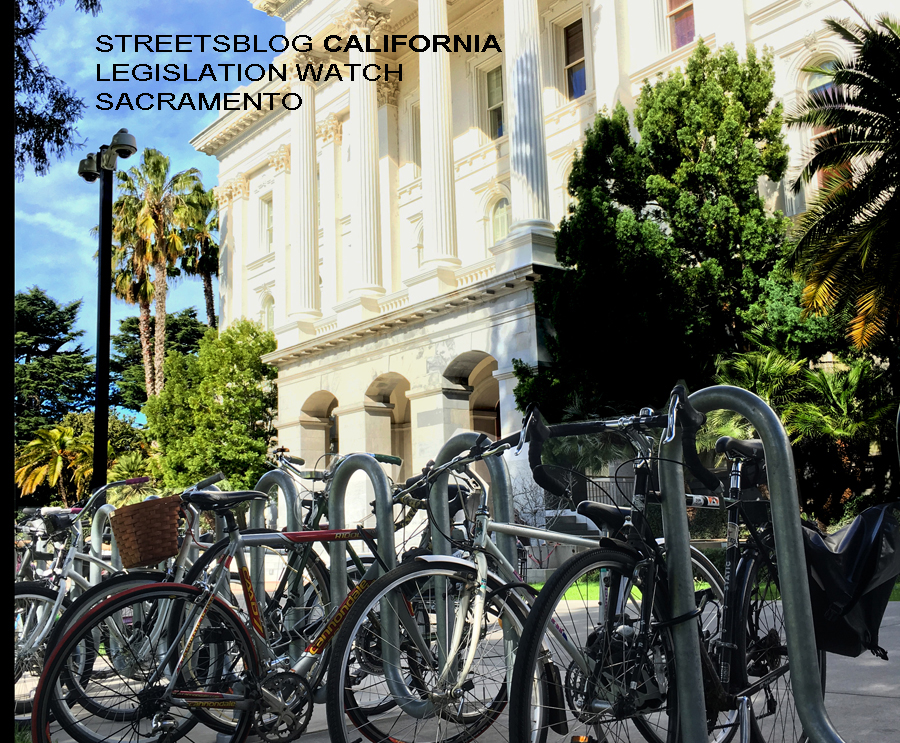Senator Scott Wiener (D-San Francisco) and two co-author Assemblymembers Robert Rivas (D-Salinas) and Ash Kalra (D-San Jose) today introduced S.B. 260, the Climate Corporate Accountability Act.
The bill is aimed at making large corporations take responsibility for the emissions they produce. It would require corporations with income of $1 billion or more annually who do business in California (not just headquartered here) to track and report all the greenhouse gas emissions they produce in the course of doing business. They then must set "science-based targets" to reduce their carbon footprints.
Importantly, the reporting requirements would apply to all emissions related to a corporation's business. That would include power usage and operations, as well as other functions that may not be considered "core" functions but that emit greenhouse gases, including from the supply chain, employee commuting, transportation, and delivery.
For example, Amazon would have to report on the emissions produced by making deliveries to people's homes, even if they use a third party service to do so. And Uber and Lyft, who under Prop 22 define their drivers as independent contractors, would have to report emissions produced by those contractors.
Many corporations are already tracking this information, but do not share it with agencies working on climate change reduction. And, as Mary Creasman of the California League of Conservation Voters, one of the bills' sponsors, pointed out, "You do not improve what you don't measure."
"It's a question of sharing the information they already have," said Michael Schmitz of Carbon Accountable, another sponsor of the bill.
Not only do corporations internally track much of the information that the bill would require them to share with the state, some are also starting to see pressure from stockholders on financial risks inherent in climate change, according to Senator Wiener. "I don't view this as a burden, but as long-overdue step," he said.
The bill's co-authors and sponsors emphasized the urgency of taking action on climate change. Assemblymember Rivas spoke of problems in his district, the Salinas Valley, which he calls "the salad bowl of the world." Last fall, farmworkers there were "left inhaling toxic smoke [from California's wildfires] for weeks. Low-wage earners, who are facing housing and food insecurity especially under the pandemic, had no choice but to report for work in those unhealthy work conditions," he said.
"The best time to tackle climate change was yesterday," he said. "We don't have time to keep hiding our emissions overseas. This is a basic human rights and equity issue."
The information will be made public, said Senator Wiener. "The whole point of the legislation is to make sure the public knows about it," he said. "Consumers need this information, so we can make informed choices about goods and services."
"People who have packages delivered have a right to know what the carbon footprint of that delivery is," said Assemblymember Kahlra.
Pushback from industry is "part of the legislative process," said Wiener, "but I think there will also be corporate support, whether that is expressed quietly or publicly."
Creasman pointed out that the bill's goal--calling for accountability and transparency--"is exactly the government's role."
"We know that a hundred companies are responsible for seventy percent of global carbon emissions," she said, but government agencies lack data on what companies are doing.
California has already grabbed "a lot of low hanging fruit" in terms of climate change policy, she said. "By any measure we are strong on climate - but it's not good enough, based on what science tells us we have to do. If California is serious about solving climate crisis, this is an essential piece of the puzzle."
Corporations have not been held accountable for the future, said Kalpana Narlikar, a ninth grader with the Sunrise Movement Bay Area, another bill sponsor. This seems to be due to what she called "a carefully guarded lack of transparency."
"They are not being held accountable because we - the people - can't see what they're doing," she said.
"This bill benefits all of us," she added. "It is our chance to switch from institutionalized lack of transparency."
"This is in everyone's interest. Whether you are a high school student, a state senator, or a frontline grocery worker--it is in everyone's interest to not have catastrophic climate effects from corporations," said Senator Wiener.
The bill will now go through the legislative process, and if it passes and is signed into law by Governor Newsom, would take effect next January. It would give the California Air Resources Board a year to create a reporting structure, and then companies would have a year to comply with the reporting requirements.
Then they would have until 2025 to begin setting their emissions reduction targets.






